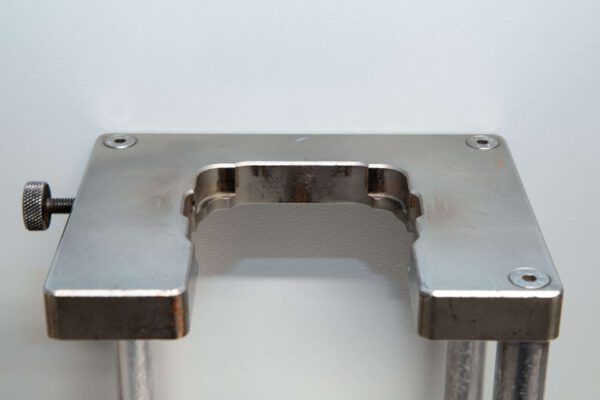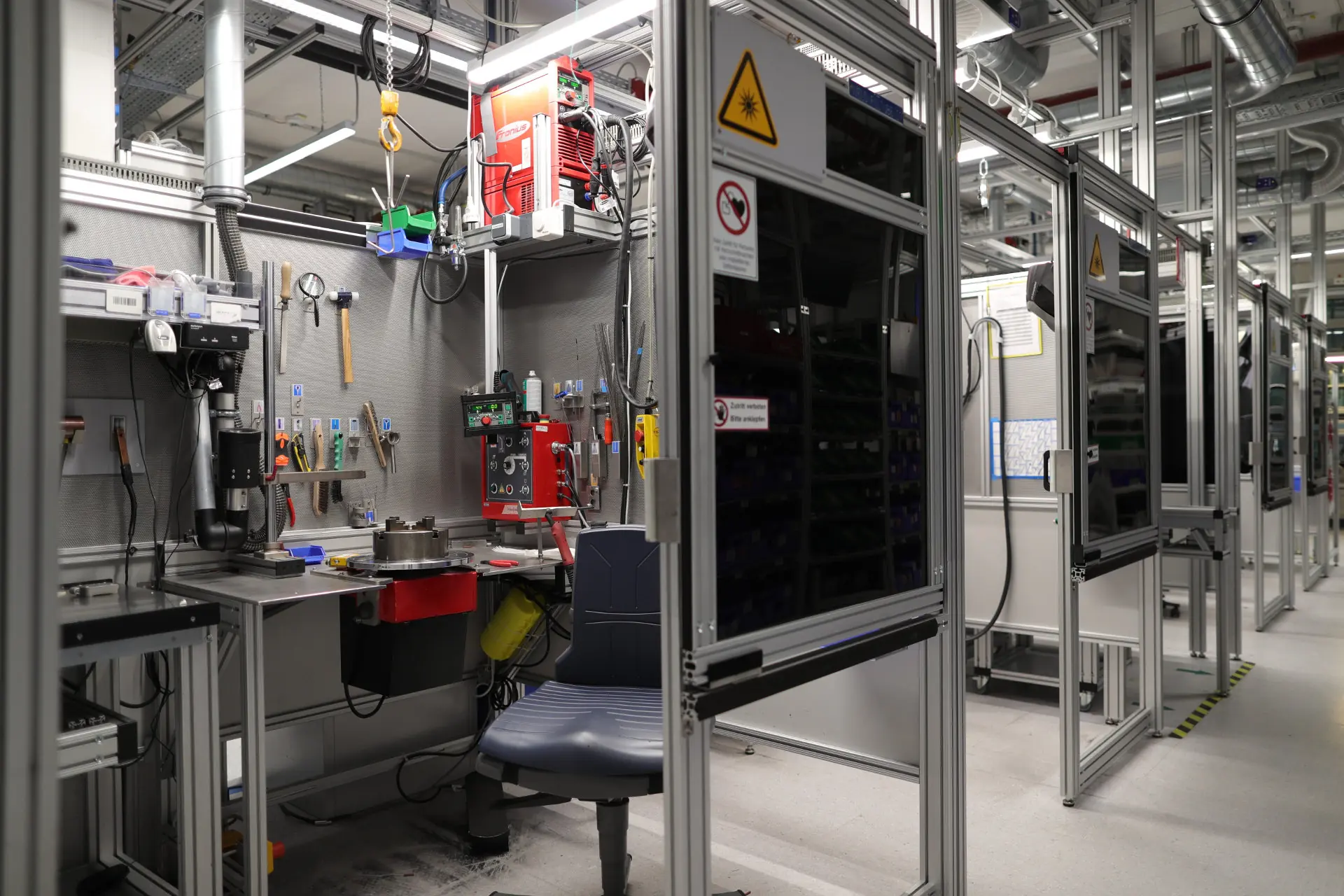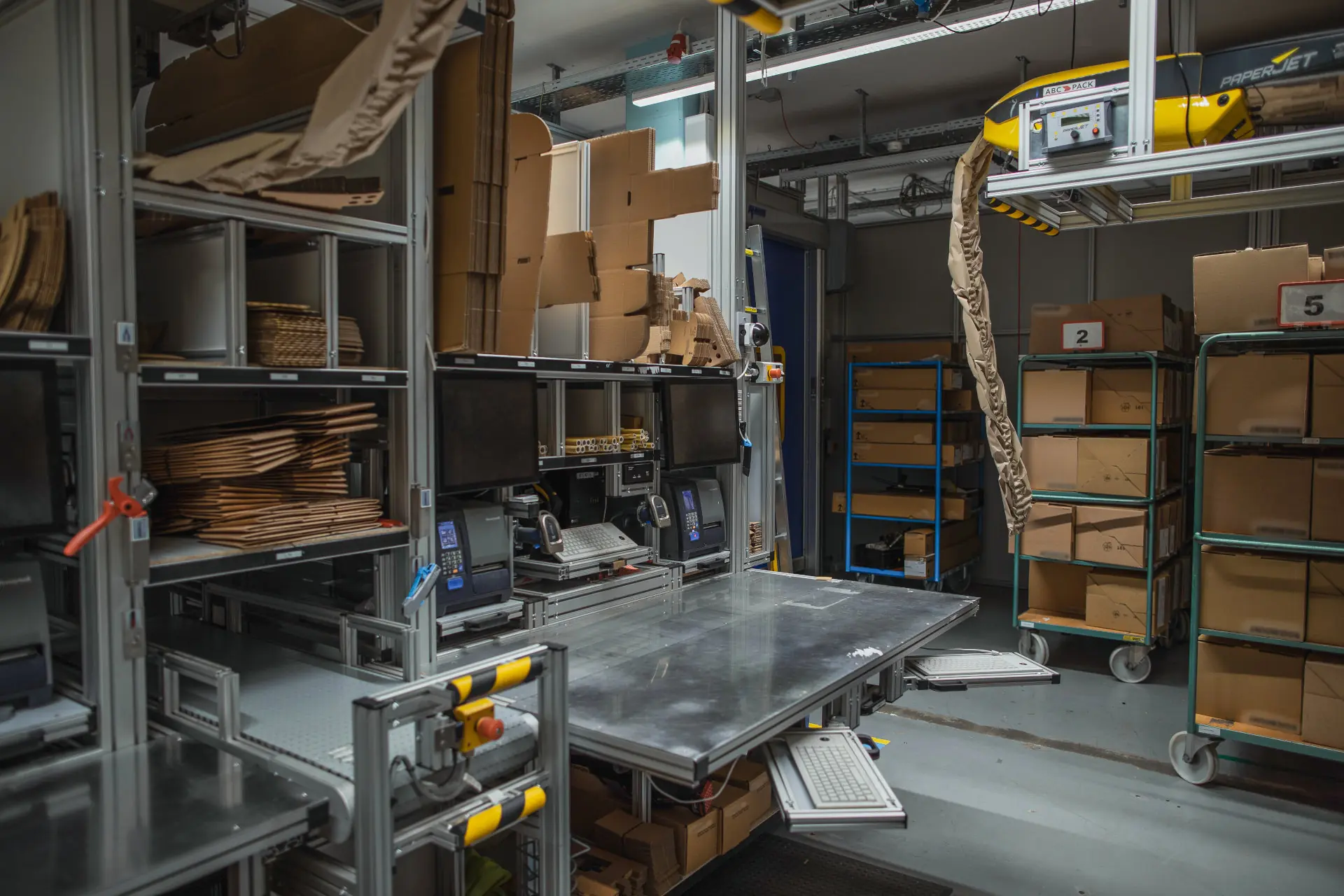U-Shaped Production Line
Initial situation of the production line
Long running distances and teamwork challenges
The original production line comprised nine stations, which were operated by a team of five to nine employees. The long distances between stations made collaboration difficult and led to efficiency losses.
Helping each other out from the front to the very back
Passing the parts from one station to the next often resulted in the loss of small parts, which affected productivity.
Backlog of semi-finished products
Backlogs of semi-finished products between stations made it difficult for employees to work together effectively due to the distance and lack of overall overview.
Workplace design issues
Oversized work surfaces
The workstations had too much table space that was not being used efficiently. Instead, it was used as a storage space for personal items, tools and trash.
Storage of assembly components
All assembly components were stored behind the workstations. The variety of materials combined with a high cycle rate led to errors when selecting the required components.
From your vision
to the real solution
Optimizing the production line after lean management
U-shape for flexibility and efficiency
By redesigning the production line into a U-shape, we are improving the flexibility and efficiency of collaboration. Short distances and the ability to change jobs quickly optimize the workflow.
Reorganization of storage areas
We separate the material storage areas from the workstations. Large components are now stored in a separate order picking line, while smaller components and auxiliary materials are ergonomically and logically arranged at the workplaces. This promotes efficiency and prevents the loss of small parts.
Automating material handling
We have an automated conveyor belt and lift system for the supply and removal of the components. This not only improves the provision of the required components in the correct order, but also reduces manual transport tasks. By optimizing the material flow, throughput time is significantly reduced and the FIFO principle is consistently adhered to, which leads to more efficient production processes.
Efficient use of space and materials
The introduction of adapted mounting boards replaces conventional work tables and reduces superfluous floor space. The Kanban system ensures an optimal supply of materials and supports the efficient use of the work space.
Project video
A direct look









